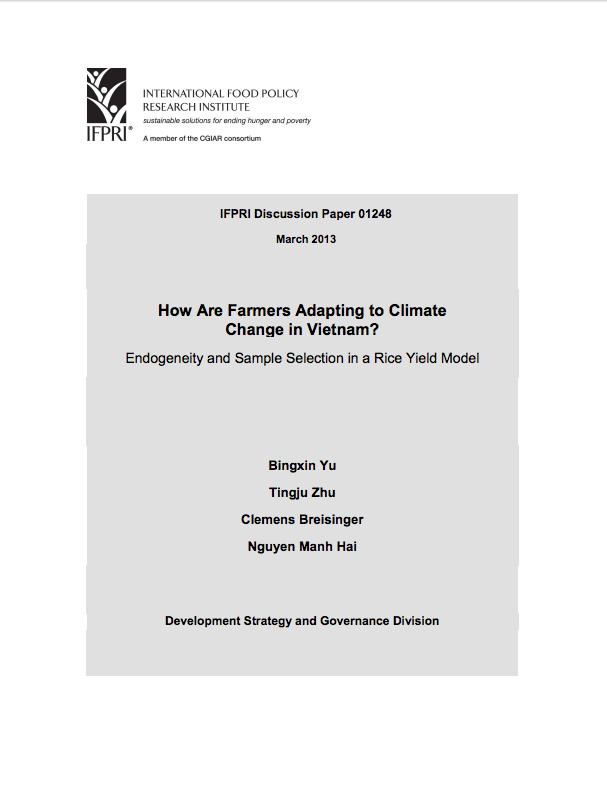How are farmers adapting to climate change in Vietnam? Endogeneity and sample selection in a rice yield model
This paper examines how a changing climate may affect rice production and how Vietnamese farmers are likely to adapt to various climatic conditions using an innovative yield function approach, taking into account sample selection bias and endogeneity of inputs. Model results suggest that although climate change can potentially reduce rice production, farmers will respond mainly by adjusting the production portfolio and levels of input use.




